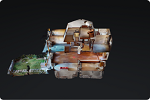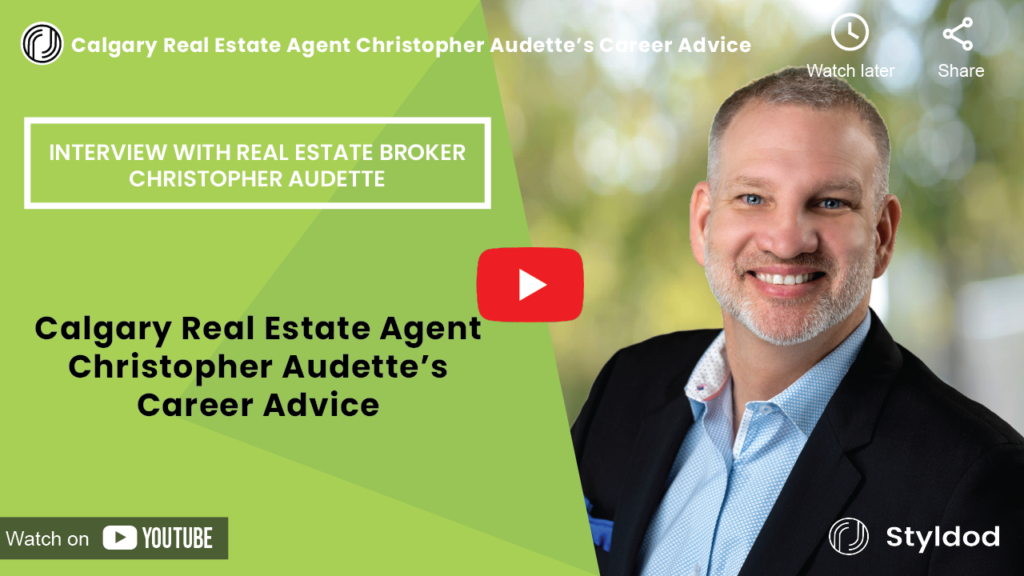Free Templates, Infographic, Real estate technologies, Tin tức
From Pharmaceuticals To Real Estate Career: Broker Deirdre Dunne’s Journey
Ontario-based broker Deidre Dunne started her real estate career as a licensed realtor in 2014. Her journey from corporate to real estate was prompted by her desire to help home buyers achieve the best outcome for their real estate needs while getting better control over her life. Having spent many years in the pharmaceuticals industry, Deirdre uses her past work experiences, additional training she’s received in negotiations, and learnings from her own relocations to make the home search experience a stress-free one for her clients. Her particular focus is on baby boomers and seniors, although she loves helping clients from all walks of life find their dream home. We had the wonderful opportunity to catch up with Deirdre for an insightful discussion on how to navigate through the real estate industry. Here’s the summary of this interview.
Deidre Dunne’s top real estate career advice
Broker Deirdre Dunne had an amazing start to her real estate career. Here’s a gist of her top advice on the areas to concentrate on if you aim to taste success early on in a competitive market.
For the people who don’t know you, who is Deidre Dunne? Tell us a little bit about yourself and how you got into real estate.
I don’t know if it’s a typical past or not. I have been in real estate for six years and passed the six-year mark in January. It started probably in 2009, so what happened was; my husband and I had moved quite a bit, we had two daughters, and by the time my eldest daughter was ten years old, we had moved five times! We moved to different cities and stuff, and often I used to joke with my husband, “you know when I retire, I am gonna become a real estate agent.” Ummm… but I am not retired, in addition, I also became a real estate investor, and through that journey, I just got interested in real estate. I was dissatisfied with where I was working, which is the pharmaceuticals industry when I started to explore the real estate industry. I then discussed this with my husband, and I said, “okay, so I am going to take the first course.” I did. I then took the second course. After that, we put together a game plan for me to exit from where I was working so that I could start working for myself. So it was kind of planned, but it was more of a reaction to leaving my corporate job. And not worrying about downsides and having more control over my life for sure.
What drives you in this profession?
“I think I really love problem-solving, and another thing, I just love it when clients bring me into their inner circle, and I can be part of that problem-solving.” So for me, it’s a little bit almost like a puzzle.
You know, I was just out this afternoon with a first-time homebuyer. We’ve seen a number of places, we have lost out on a couple, because there’s, you know, such competition for places right now, where we live, which is in South West Ontario, and just being part of her little inner circle, we can then really problem-solve. I could come up with a lot more ideas for them and possibilities, to help them evaluate their homes better so that when they buy that place. There is nothing better than giving them a call and saying, “you have got the place.” or on the selling side saying, “okay, we have got, you know, three or four offers or more for your place, and we have got a great fit!”
And I always say to my clients, if they lose, that it wasn’t your house. I can tell you, I have seen way too many times where people are so disappointed, “Oh! I am so done.” But trust me, it wasn’t your house, and I am telling you when you get your home, you gonna look back and say, “you know that other house we lost, I like this one better.” And it has always worked that way. So it is always helping them problem-solve and find a solution for their real estate home needs.
What would you do differently if you were to go back to the beginning of your real estate career?
I would do a lot differently. “I would tell myself, don’t be afraid to make mistakes. Mistakes are all part of the process. They’re not bad; they’re actually opportunities to learn.”
Number one, take more risks because the downside is not nearly as bad as you think it’s going to turn out. And probably, I would have been more fearless in trying different things, not hesitating, and being afraid to make those mistakes. Cause I grew up in an environment where I was fearful of making mistakes. And that hasn’t been my experience at all. So this is what I would tell myself. Enjoy the journey cause there is so much to learn.
What do new agents need to know about a career in real estate?
I think it’s certainly customer service to differentiate between being there for your clients, and that isn’t just at the beginning of their process, even when they are selling or buying, but also during and after the process.
So I always tell my clients that I am all about the relationship and about the actions. So the thing is, “be there throughout the process and consistently for them.” I had lots of clients in the past saying, “wow! You followed up after the transaction, and I can get a hold of you.” Unfortunately, there are agents like, who disappear by that point. So this is definitely the number one.
Number two, “you have to really like people and like whether it’s problem-solving or customer service, and there is also an entrepreneurial spirit with being a real estate agent because you work for yourself, right?” I only get paid when I sell a house. So it’s very much an entrepreneurial spirit. And, you know, there’s no one there saying, jeez, you have to make those calls today, or you have to go and do those pop by’s. You have to be self-motivated. And that’s part of the entrepreneurial spirit.
How important is marketing in real estate?
“It is so important. This is where I am working more this year than probably in any other year. I think marketing is a huge component of this business.” Because there are so many choices out there like everybody seems to know a real estate agent, right? Everybody has a friend, a family member, or a colleague that is in this business. To differentiate yourself, marketing is one, which helps in making those connections with people. Two, telling people about your service and about your history and also, that you are open to them and that you are a choice… to have to find your voice and rise above what other agents are doing. Because there are so many people to choose from. So how are they gonna choose you over someone else? How are you different?
What real estate marketing tools do you use?
So there are the grassroots and others the widespread tools. The grassroots for me is I am much more about relationships and referrals. So growing those relationships, continuing these relationships even after someone has bought or sold with me. Following up with them. So, I do pop by’s with them, I do client parties. I do special events for my clients. So those are what I call grassroots marketing. I keep in touch, and I write notes to them.
Then, there’s the more broad marketing, using the internet. So social media is one that I’m working on more and more this year; I’ve committed to it. And also, I think, marketing to other service providers. So whether that be lawyers or attorneys, maybe it’s services like painters, electricians, plumbers. Maybe it’s mortgage brokers or insurance people so that you make that network of people, and you give them business, and they, in return, give you business. So it’s a referral business using the internet.
Who’s your favorite kind of client? Do you instinctively know who is worth spending your time on?
My ideal client is someone who lets me into their inner circle and has trust in me. So when you let me into your inner circle, that’s when I can work the best for you. Because I know what your challenges really are. But when you keep me outside, and you don’t tell me all the information, I am not able to come up with the best solution for you.
What is the biggest challenge you have faced in this business? How did you overcome it?
If I had a superpower, my superpower would be just being consistent.
This is one of the most significant challenges I feel I face and many others face. That is getting up and doing what you are supposed to do: make your calls, get in touch with your clients, make appointments by just doing that day in and day out. If I could do that 80 – 85% of the time, I would have a fabulous business because it’s too easy to get distracted by any other shiny objects. I have learned that it doesn’t matter if you are someone who goes door-knocking if you’re someone who cold calls or if you’re someone who has a referral business; all of these systems work if you work them, and you only work them if you’re consistent. And so, for me, it’s being consistent. There’s lots of magic that happens with consistency.
Thoughts on using virtual staging, virtual tours, and other technologies used in real estate.
What you offer at Styldod is amazing, because we want really great pictures and we want people to see the potential in a room. Apps like Styldod, where I can send you pictures, erase everything there and put furniture, and remake the room at a fraction of the cost… help people imagine the potential of a room and what it will look like. Services like that are so important. I think the other services include great photography; it’s essential as well.
I am also a big believer in floor plans, so including those 360-degree views of those rooms helps see the entire room and the floor plan. Because pictures can tell you one story, but this helps one see the floor of the house, which is important.
I also believe in pre-sale home inspection, there are a lot of different opinions about this, but this allows the sellers to take a last look at it and make changes that are easy to make, like the taps and fix that.
These are the things that have helped my business along with virtual staging. I have to say, (virtual staging) is just a godsend because traditional staging takes a lot of time. It is pretty expensive. You gotta make plans. And with the market moving so quickly right now, sometimes you just don’t have time to plan. I’ve had a couple of listings where it was tight in terms of when they bought a new place and had to sell their place. And there wasn’t a lot of time in between, and we wouldn’t have had time for staging, and we then used Styldod, and we’d say, you know, this is virtually staged. So we let people know, and I show them the before and after, and it just, it works well. I’m really happy about that.
How has your experience been with Styldod?
It’s been great. I used it several times last year. So one was an empty condo that I was selling, so that was empty, then we put in around four rooms, living, dining, two bedrooms, and an office. And you helped me to visualize how the space would look for them!
The other virtual staging that comes to mind is that the house was partially empty, and it was an older person who had lived there and moved after retirement. So it didn’t look great! But with Styldod, we removed all the old furniture left there and put in more updated furniture. And it just showcased the room’s potential, so that was very helpful for buyers, for sure.











